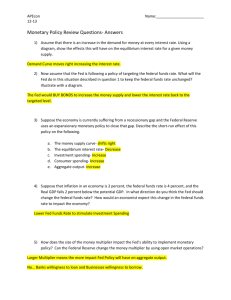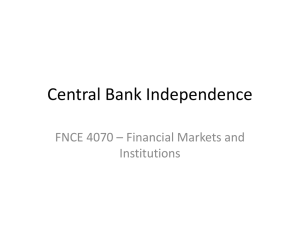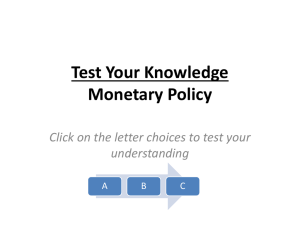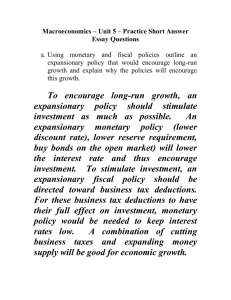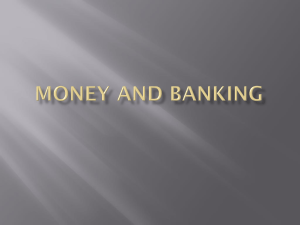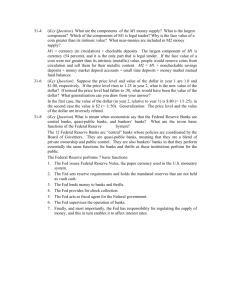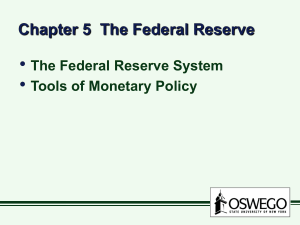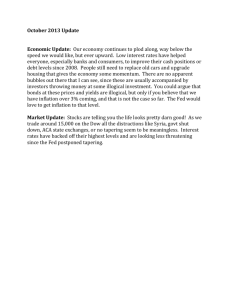Chapter 12 Homework Solutions
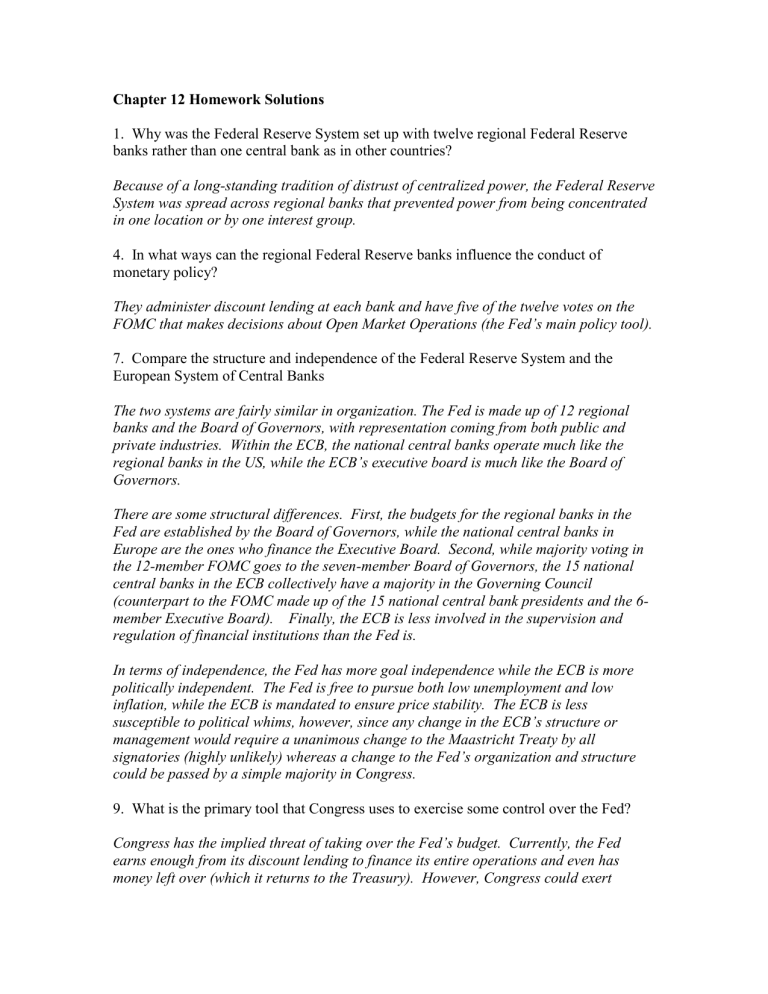
Chapter 12 Homework Solutions
1. Why was the Federal Reserve System set up with twelve regional Federal Reserve banks rather than one central bank as in other countries?
Because of a long-standing tradition of distrust of centralized power, the Federal Reserve
System was spread across regional banks that prevented power from being concentrated in one location or by one interest group.
4. In what ways can the regional Federal Reserve banks influence the conduct of monetary policy?
They administer discount lending at each bank and have five of the twelve votes on the
FOMC that makes decisions about Open Market Operations (the Fed’s main policy tool).
7. Compare the structure and independence of the Federal Reserve System and the
European System of Central Banks
The two systems are fairly similar in organization. The Fed is made up of 12 regional banks and the Board of Governors, with representation coming from both public and private industries. Within the ECB, the national central banks operate much like the regional banks in the US, while the ECB’s executive board is much like the Board of
Governors.
There are some structural differences. First, the budgets for the regional banks in the
Fed are established by the Board of Governors, while the national central banks in
Europe are the ones who finance the Executive Board. Second, while majority voting in the 12-member FOMC goes to the seven-member Board of Governors, the 15 national central banks in the ECB collectively have a majority in the Governing Council
(counterpart to the FOMC made up of the 15 national central bank presidents and the 6member Executive Board). Finally, the ECB is less involved in the supervision and regulation of financial institutions than the Fed is.
In terms of independence, the Fed has more goal independence while the ECB is more politically independent. The Fed is free to pursue both low unemployment and low inflation, while the ECB is mandated to ensure price stability. The ECB is less susceptible to political whims, however, since any change in the ECB’s structure or management would require a unanimous change to the Maastricht Treaty by all signatories (highly unlikely) whereas a change to the Fed’s organization and structure could be passed by a simple majority in Congress.
9. What is the primary tool that Congress uses to exercise some control over the Fed?
Congress has the implied threat of taking over the Fed’s budget. Currently, the Fed earns enough from its discount lending to finance its entire operations and even has money left over (which it returns to the Treasury). However, Congress could exert
significantly more control over the Fed by requiring all Fed operations to be financed out of the government budget. If Congress were able to control the purse-strings, they would be able to exert a great deal of control over monetary policy. In fact, simply threatening to take over the Fed’s finances may be enough to alter monetary policy.
12. Why might eliminating the Fed’s independence lead to a more pronounced political business cycle?
The political business cycle results from the federal government pursuing expansionary fiscal policy during election years, then contracting the economy after elections to ward off inflation. If the Fed was not independent from the federal government, then both fiscal policy AND monetary policy would be subject to the political motivation of expanding the economy to ensure the re-election of incumbent politicians.
13. “The independence of the Fed leaves it completely unaccountable for its actions.” Is this statement true, false, or uncertain? Explain your answer.
This is a false statement since legislation in Congress could change the current structure of the Fed and make it less independent. The Fed’s mission is to be a responsible steward for monetary policy. Its independence is contingent on it performing this duty well. If the Fed does a poor job of monetary policy, then Congress (and the American public) will demand closer oversight and control of the Fed. Since the Fed is a public institution, it exists at the whim of the people. Once the trust of the people is broken by poor monetary management, then the Fed will lose legitimacy and eventually independence.
